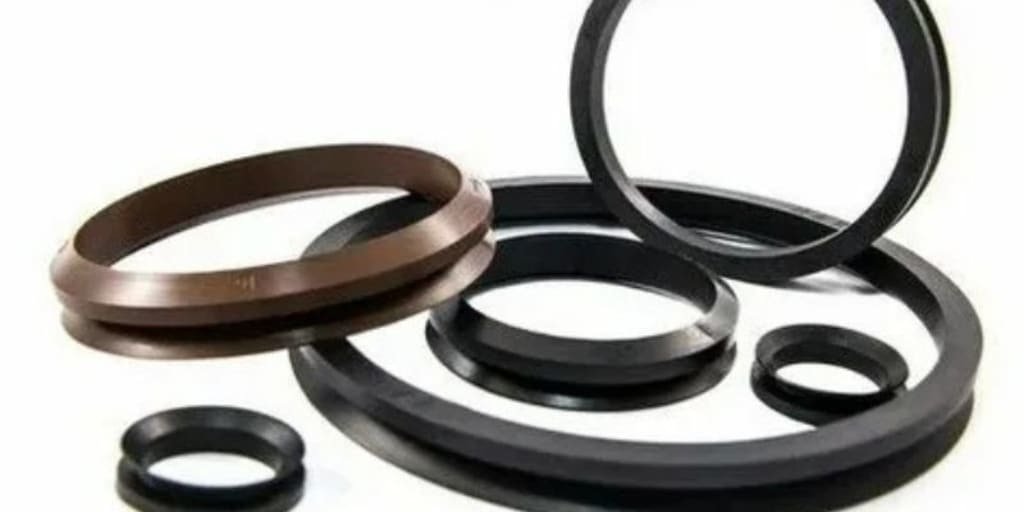In industrial settings, ensuring safety and proper operation of equipment is essential. Ring gaskets are crucial components that help achieve this by providing reliable seals to prevent leaks and maintain the integrity of systems. These gaskets are designed to handle extreme pressure, resist corrosion, and tolerate temperature variations. Their importance in safeguarding both personnel and equipment in various industries is clear.
Managing Pressure Safely
RTJ gaskets are essential for managing pressure safely in industrial applications. These gaskets are specifically designed to withstand high-pressure environments, preventing system failures caused by pressure fluctuations. Their ability to create a stable barrier between components ensures that machinery can operate without the risk of pressure-related accidents.
The durability of ring-type joint gaskets under pressure is key to preventing dangerous malfunctions. Experts emphasize the importance of selecting the right gasket to handle the unique pressure requirements of each system. A well-designed gasket will manage pressure effectively, ensuring the safety and efficiency of the operation.
Preventing Leaks
One of the primary functions of ring gaskets is to prevent leaks. These gaskets form a tight seal between two surfaces, ensuring that hazardous substances do not escape. When installed correctly, they effectively block the flow of fluids or gases, reducing the risk of leaks. This is vital in industries where even a small leak can cause significant safety hazards or environmental damage.
In high-pressure environments, where leaks are more likely to occur, gaskets become even more critical. A proper seal ensures that systems operate without risk of leakage, protecting both equipment and personnel. For this reason, companies depend on high-quality gaskets to maintain system efficiency and safety.
Sealing Integrity in Harsh Environments
Ring gaskets provide reliable sealing in harsh environments where other sealing methods might fail. In applications exposed to extreme temperatures or corrosive chemicals, these gaskets offer lasting performance. They are engineered to maintain their sealing properties even under severe conditions, ensuring that systems remain secure.
The materials used in ring gaskets are often chosen for their resistance to corrosion and degradation. This makes them suitable for industries like petrochemical processing, where exposure to harsh substances is common. By maintaining sealing integrity, these gaskets help ensure safety in environments where failure is not an option.
Mitigating Corrosion and Contamination
Ring gaskets play an important role in mitigating the effects of corrosion and contamination in industrial settings. Made from materials that resist corrosion, these gaskets help prevent the seepage of harmful chemicals or other substances into systems. Their protective qualities contribute to maintaining clean and safe operations, reducing the risk of contamination.
In industries that handle hazardous materials, corrosion resistance is crucial. Ring gaskets prevent substances from leaking out, which could otherwise lead to contamination or unsafe working conditions. The materials used for these gaskets ensure they are effective in protecting equipment and maintaining system integrity over time.
Temperature Regulation Safety
Ring gaskets also contribute to temperature regulation in industrial operations. These gaskets are designed to withstand both high and low temperatures, maintaining their effectiveness under varying thermal conditions. This is important in industries where equipment is exposed to extreme heat or cold, as improper sealing can lead to system failures or safety risks. By maintaining a reliable seal despite temperature fluctuations, ring gaskets help prevent potential leaks caused by thermal expansion or contraction. This ensures that equipment continues to function safely and efficiently, even in environments subject to significant temperature changes.
Safety-Focused Materials and Design
The materials and design of ring gaskets are essential for ensuring safety in industrial applications. Gaskets are made from high-quality materials such as stainless steel, graphite, or specialized alloys, chosen for their strength and durability. The design of these gaskets allows for a perfect fit, ensuring that they effectively seal components without fail.
In industries where safety is critical, companies rely on gaskets that meet stringent standards. The right materials and design prevent leaks, protect against wear, and ensure the long-term safety of equipment. Gasket manufacturers carefully select materials that provide the best balance of performance and reliability in challenging environments.
Maintenance for Safety Compliance
Regular maintenance and inspection are necessary to ensure that ring gaskets continue to perform safely. Over time, gaskets can degrade or become damaged, potentially compromising their sealing ability. Routine maintenance helps identify any wear or damage early, preventing leaks or system failures from occurring.
For industries that must comply with safety regulations, maintaining gaskets is a priority. By replacing worn-out gaskets and performing regular checks, companies can avoid the risks associated with malfunctioning seals. This proactive approach to maintenance helps ensure that systems remain safe and operational, meeting all required safety standards.
RTJ gaskets are vital for maintaining safety in industrial applications. They help prevent leaks, manage pressure, protect against corrosion, and ensure temperature regulation, contributing to the overall stability of systems. The right materials and proper maintenance further enhance their effectiveness, making them a critical component in ensuring safe operations across various industries. Regular inspection and the use of high-quality gaskets support long-term safety and performance in complex industrial environments.

